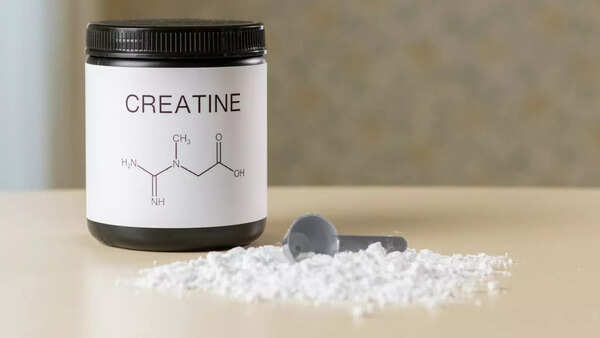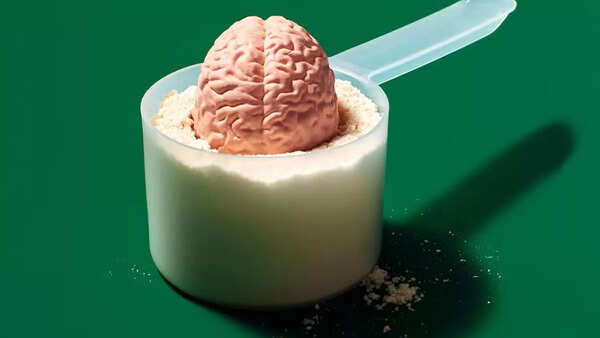Think about a vendor, continuously supplying energy to your body muscles while you’re engaged in high-intensity activities. Think of that vendor as someone (rather, something) that not only works as your reservoir of energy, but also boosts your speed, hence enhancing your performance and productivity.Creatine is that vendor, that powerhouse buddy!Creatine is widely recognized for its impeccable role in enhancing athletic performance, particularly in high-intensity activities.However, emerging research suggests that creatine supplementation may also offer cognitive benefits, including improved memory and focus.Read on to know more.
What Is Creatine?
Creatine is a naturally occurring compound synthesized in the body from the amino acids arginine, glycine, and methionine. Approximately 95% of the body’s creatine is stored in skeletal muscle, with the remaining 5% distributed in the brain, kidneys, and liver.Creatine helps maintain a continuous energy supply to your muscles during intense lifting or exercise. It plays a crucial role in energy production by facilitating the regeneration of adenosine triphosphate (ATP), the primary energy carrier in cells. Supplementation with creatine monohydrate has been shown to increase intramuscular creatine stores, hence enhancing energy availability during short bursts of intense activity.However, apart from providing energy to the body and muscles, it turns out – creatine becomes an ally to the brain as well. While creatine is primarily known for its benefits in physical performance, emerging evidence suggests that it may also play a role in enhancing cognitive function.

How?
Creatine and brain function
The brain is an energy-demanding organ, requiring substantial ATP for processes such as neurotransmitter release, synaptic activity, and information processing. Research indicates that creatine supplementation can elevate brain creatine levels, potentially improving cognitive performance.
Memory enhancement
A systematic review and meta-analysis of randomized controlled trials (RCTs) found that creatine supplementation significantly improved memory performance in healthy individuals, particularly in older adults aged 66–76 years. The analysis revealed a standard mean difference of 0.88, indicating a moderate effect size. In contrast, younger individuals (11–31 years) showed minimal improvement, suggesting that the cognitive benefits of creatine may be more pronounced in aging populations.
Attention and processing speed
Creatine supplementation has also been associated with enhancements in attention and processing speed. A study involving 492 participants aged 20.8–76.4 years reported significant improvements in attention time and information processing speed following creatine supplementation. These effects were more pronounced in individuals aged 18–60 years and females, highlighting the potential for creatine to support cognitive function across various demographics.
Protection against cognitive decline
As individuals age, mitochondrial function and ATP production in the brain can decline, leading to cognitive impairments. Creatine’s role in energy metabolism may help mitigate these effects. Research has shown supplementation to improve mitochondrial function and preserve cognitive performance in older adults, suggesting its potential as a neuroprotective agent.

Mechanisms of action:
Creatine’s cognitive benefits are thought to arise from several mechanisms:Energy production: By increasing phosphocreatine stores, creatine enhances ATP regeneration, providing neurons with a more readily available energy source.Neurotransmitter regulation: Creatine may influence the synthesis of neurotransmitters such as dopamine and serotonin, which are involved in mood regulation and cognitive processes.Oxidative stress reduction: As an antioxidant, creatine helps mitigate oxidative stress, protecting brain cells from damage associated with neurodegenerative diseases.Neuroplasticity enhancement: Creatine supplementation may promote brain plasticity, facilitating learning and memory by supporting the growth and maintenance of neural connections.
Considerations:
Creatine supplementation is generally considered safe for healthy individuals when taken within recommended dosages. Common side effects include weight gain due to water retention and, less frequently, gastrointestinal discomfort. However, it is advisable to consult with a healthcare provider before starting supplementation, especially for individuals with pre-existing medical conditions or those taking medications.Disclaimer: The content in this article is intended for informational and educational purposes only and should not be considered a substitute for professional medical advice, diagnosis, or treatment. Always consult your physician or a qualified healthcare provider before starting any diet, supplement, fitness, or health program.


